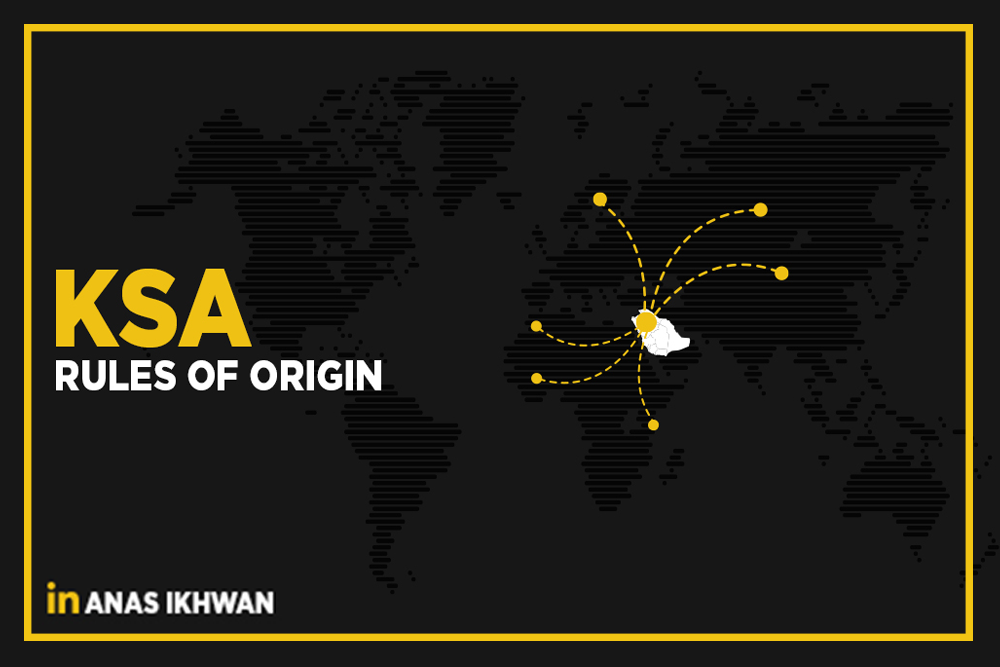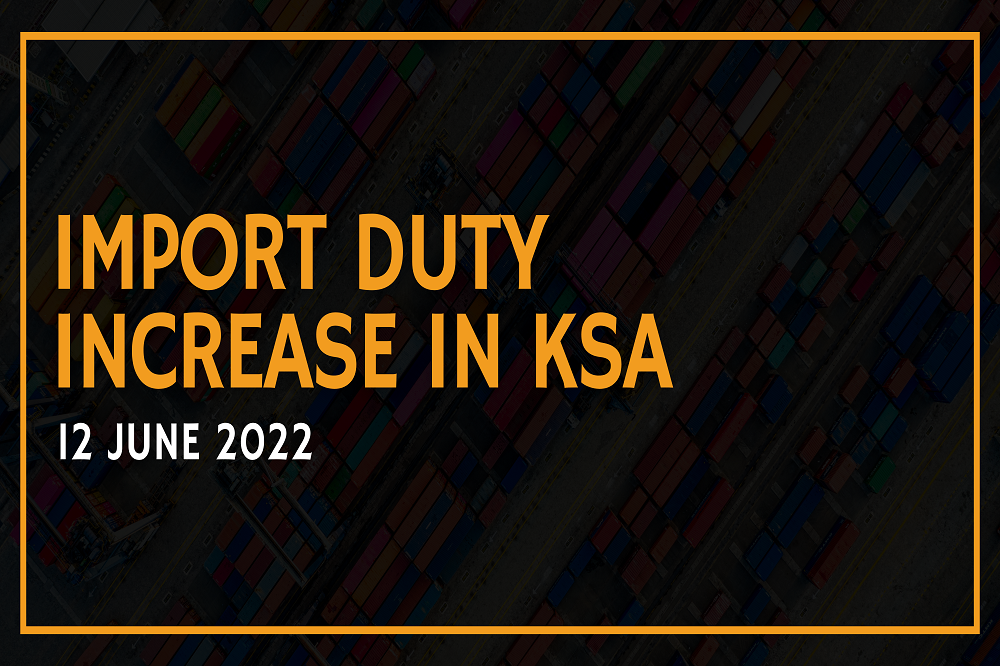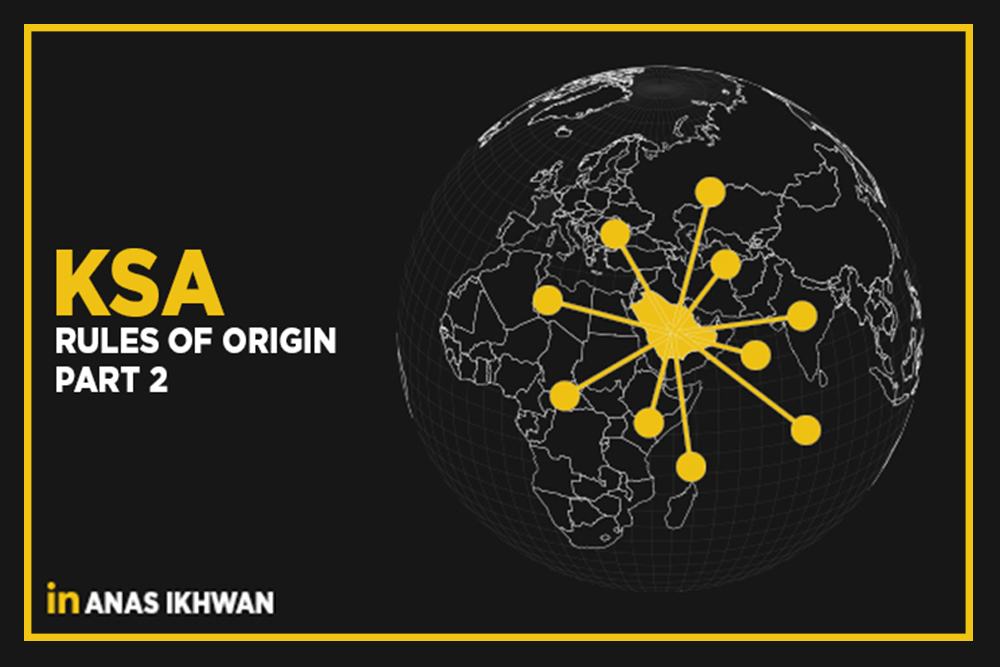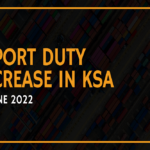KSA New Rules of Origin (Ministerial Decree 3852) – What have you missed?
Jumping into it straight away…
- Free Zones
GCC free zones manufactured goods shall not be granted preferential tariff treatment (0% import duty) when exported from other GCC States and then imported into Saudi Arabia.
Well, this is not new, and this has been the case for quite sometime now. Even for the UAE, goods manufactured in UAE free zones are subject to import duty upon import into the UAE mainland regardless of local value added or legal ownership and foreign employment rate.
In the UAE, there were some exceptions to this back in 2011 (and may be before), where a number of free zone manufacturing facilities were given a concession to import goods into the UAE mainland with no import duty. I am not sure if this is still on going.
So, the first question, is there any impact on free zone entities with the new Rules of Origin? Not really unless I am missing something.
- Direct Shipping Rule
The GCC goods shall be shipped directly from the other GCC manufacturing country to KSA.
This is a standard rule that is included in free trade agreements. I have seen this condition in all free trade agreements related to the Middle East.
What is the impact of this rule? Again, nothing unless I am missing something.
- Invoicing through a free zone company
This will impact a good number of companies.
It is common for GCC free zone companies to purchase national goods from a GCC State and ship/sell them to another GCC/KSA State while transporting it directly to the other GCC State/KSA.
This is a common practice and is indeed accepted by the customs authorities in the GCC States. Unfortunately, not anymore accepted in KSA.
What does this mean? This means:
- National goods that were before exempt from import duty in KSA will now be subject to import duty if invoiced by a free zone company located in another GCC State.
- You will need to find a new arrangement for invoicing or even a new whole supply chain.
- The rules state free zones but what if the invoicing entity is say a company located in the EU/USA, would that be accepted? I do not have an answer.
- The New Rules of Origin
- The generic rule of origin for national GCC products (excluding wholly obtained goods) is 40% local value-added. KSA changed this to include 40% local value-added plus 25% local/national workforce of the other GCC manufacturing company.
For example, for a manufacturing facility based in Oman, it shall employ 25% Omani nationals, assuming the 40% local value-added condition is met, for the goods to be considered preferential products in KSA.
Given the structure of the workforce in the GCC States, this will definitely have an impact on manufacturing facilities. The new Rules came into effect 2 July 2021 and there was no time given for GCC manufacturers to assess and, if required, rectify their position.
This may have already impacted some manufacturers and their products that were subject to 0% are now 5% or up to 20%.
- Flexibility
The new Rules of Origin introduces some flexibility in calculating the local value-added in case of a shortage in the local workforce or the local value added.
- Workforce: if the workforce is less than 25%, you can add the shortage to the 40% local value added given that you cannot go lower than 10% of workforce. For example, if your local force is 15%, you shall have then 50% local value added.
- Value-added: If your value added is less than 40%, you can add the shortage to the 25% workforce given that you cannot go lower than 20% in local value added. Meaning, your value-added is 30%, then you will have to have 35% workforce for your goods to qualify as GCC national goods in KSA.
- Monitoring and Verification
The question is now how KSA Customs will monitor these conditions and confirm the new workforce condition is met.
KSA Customs issued a set of conditions for origin verification as follows:
- KSA importer to provide a national goods’ certificate of origin
- Related invoices
- Certified/Attested localization percentage certificate issued by the relevant authority in the other GCC States.
- A report stating the percentage of the local value added from a certified public accountant licensed in the other GCC States and has a branch in KSA registered and licensed by SOCPA (the Saudi Organization for Auditors and Accountants)
If the KSA importer does not have the above documents available at the time of import, they can submit a cash or bank guarantee equal to the value of the import duty of the preferential goods (bank guarantee has to be from a KSA bank subject to the KSA Central Bank’s Supervision).
After that, the KSA importer has 90 days to provide the above documents and obtain a refund of the guarantee.
These conditions are quite strict and will affect the GCC manufacturers exporting to Saudi.
- Remarks
As a closing remark, this is quite interesting development to the GCC Rules of Origin. In particular, how this requirement is now only applicable to the GCC States and does not include other Arab countries.
Also, for KSA manufacturers, are they going to have to abide to these rules of origin for the goods being exported to other GCC States. That should be the case in my opinion if not already applied.
For questions and clarification on the 40% local value-added, send me a DM and we shall discuss this together.






